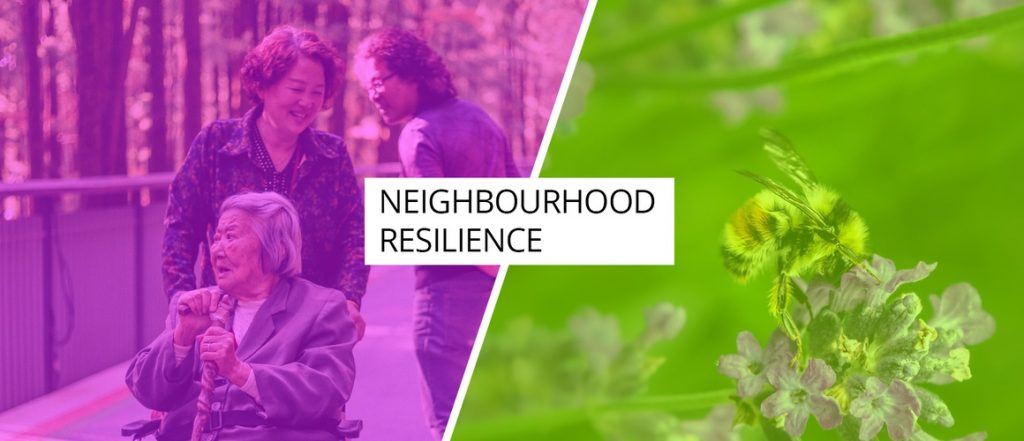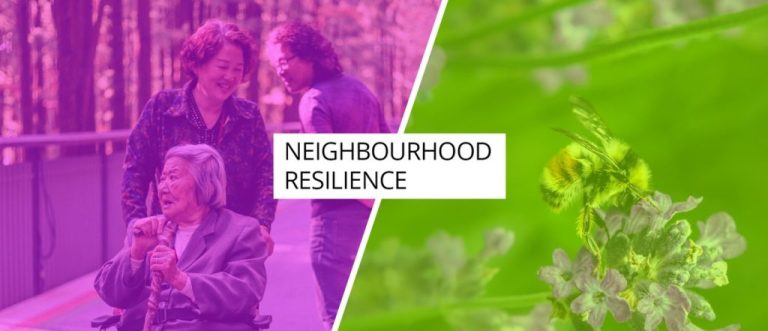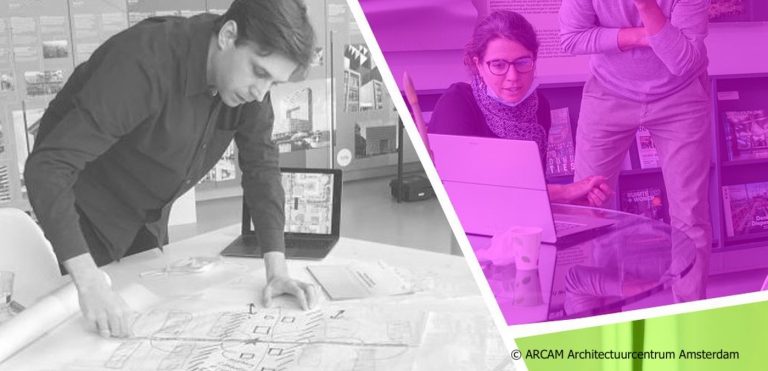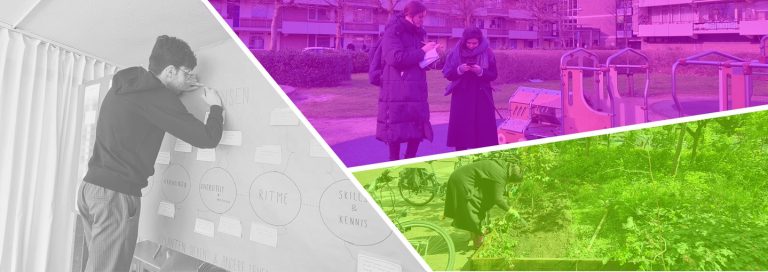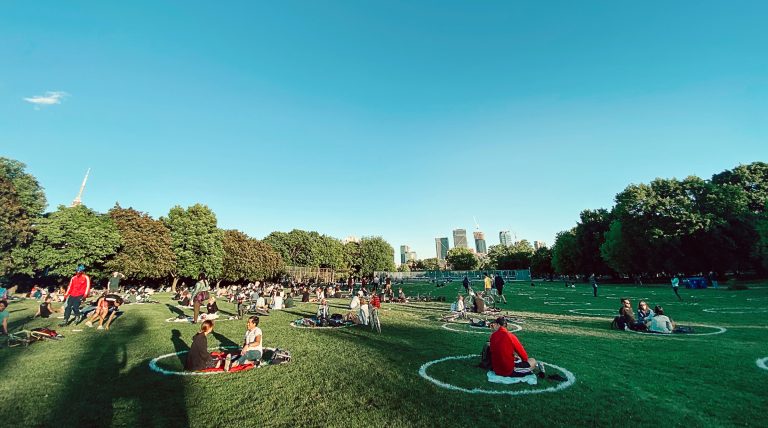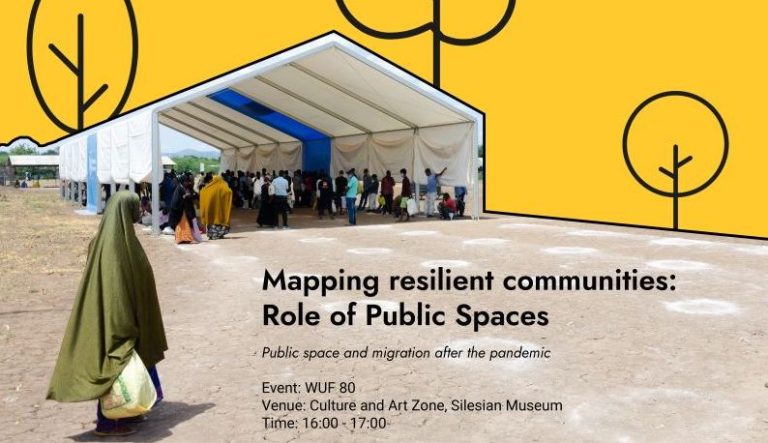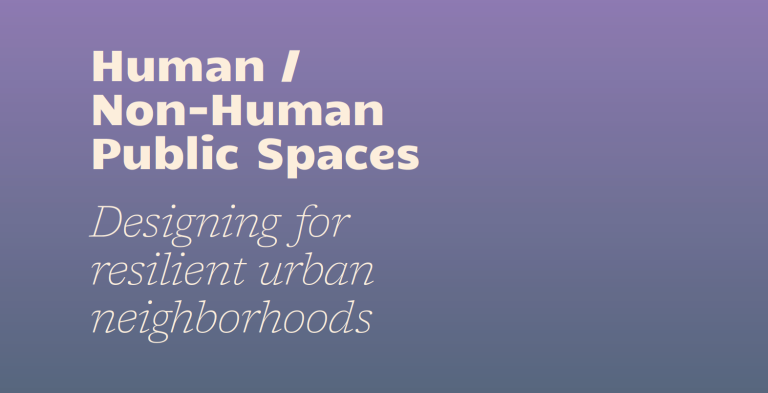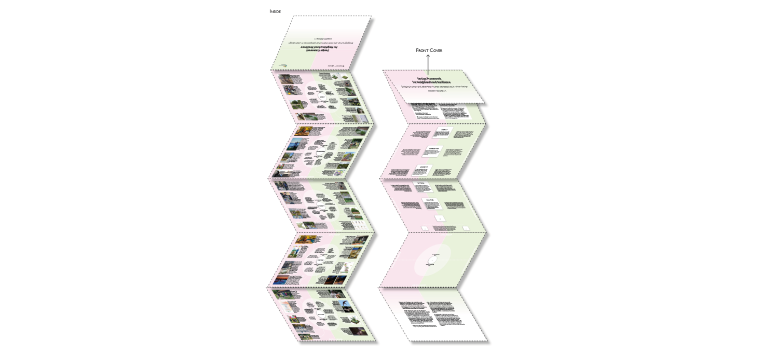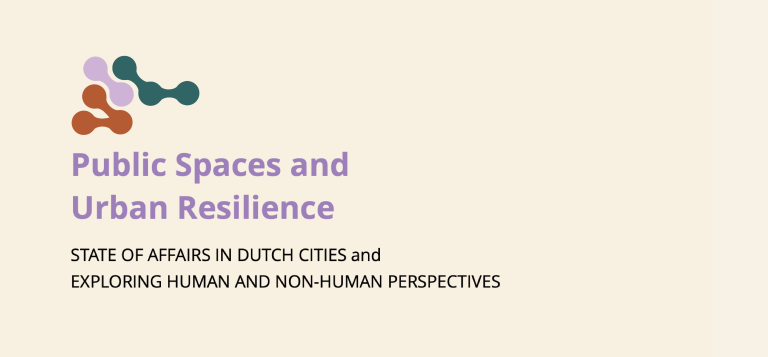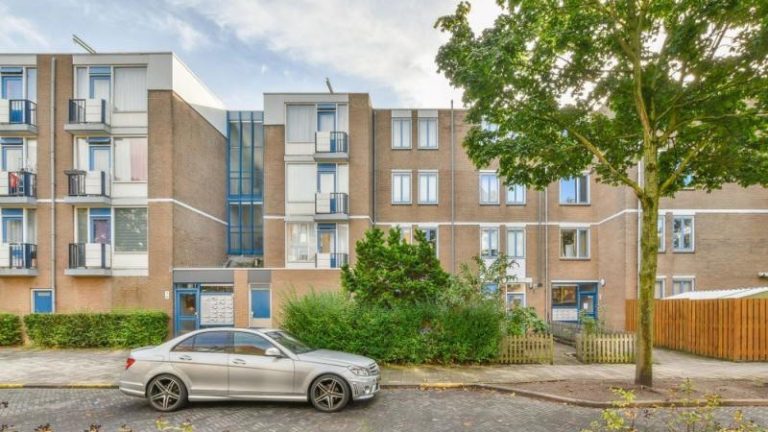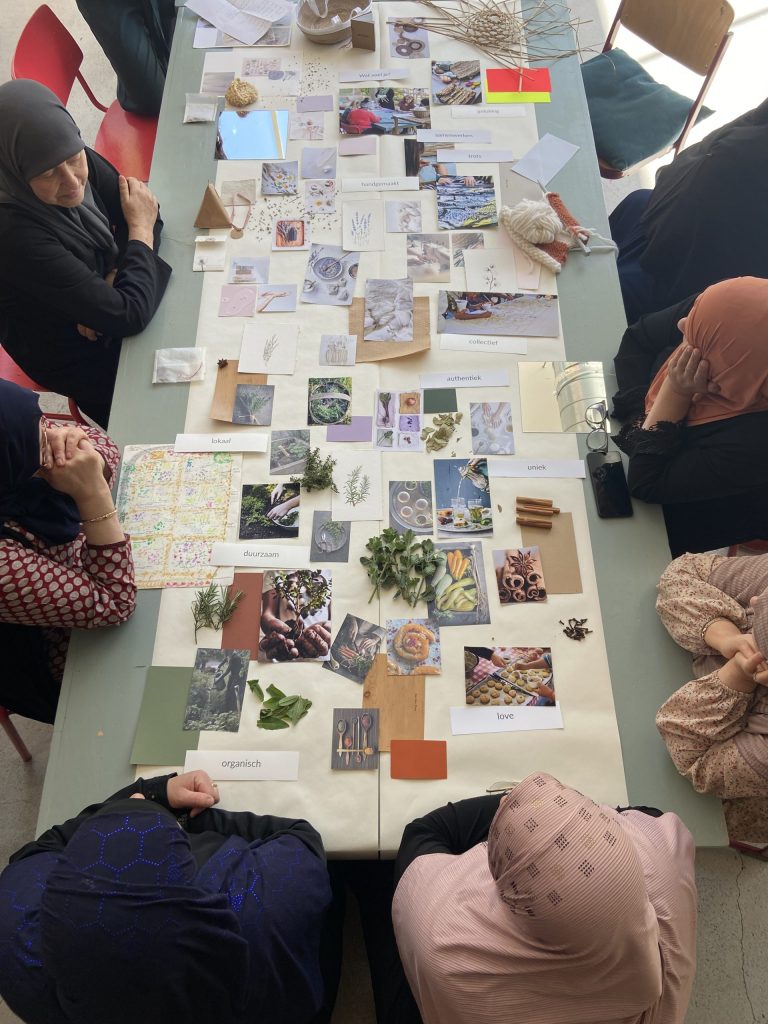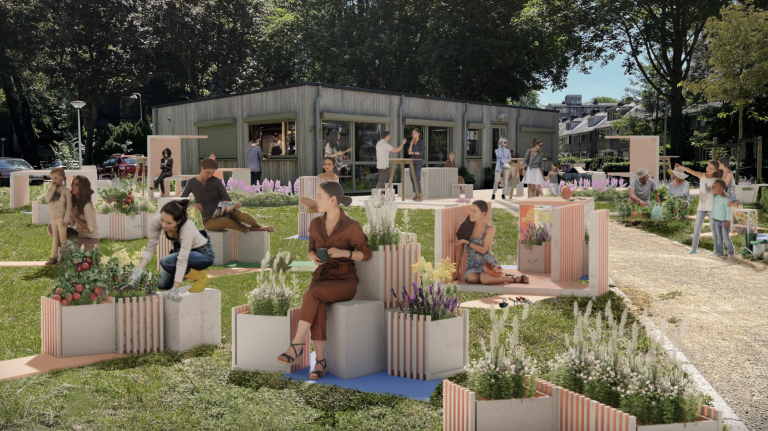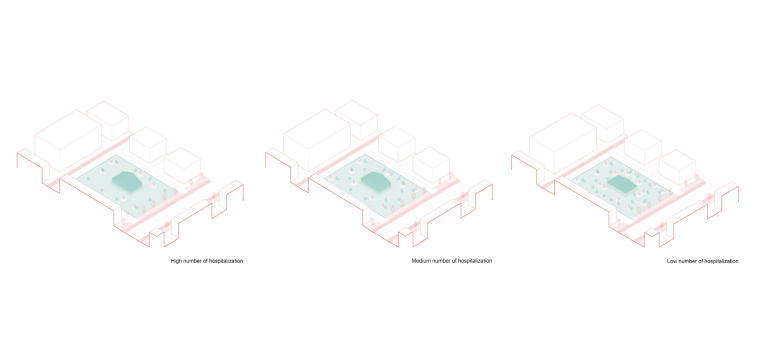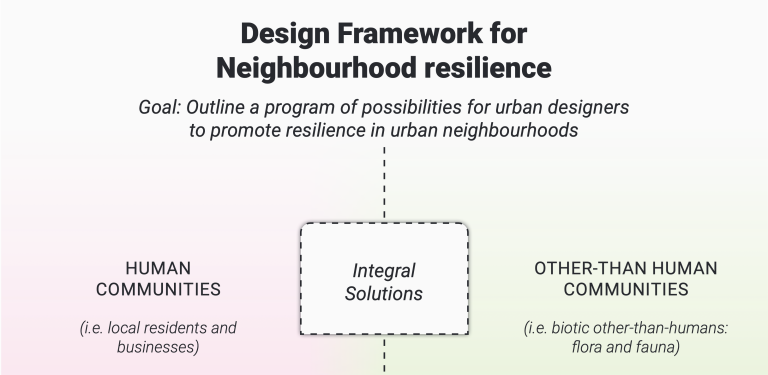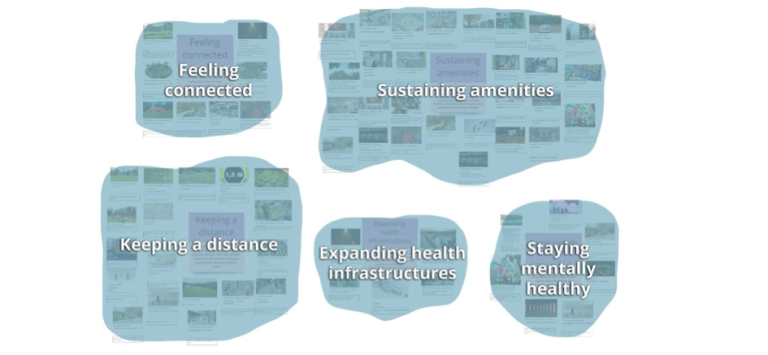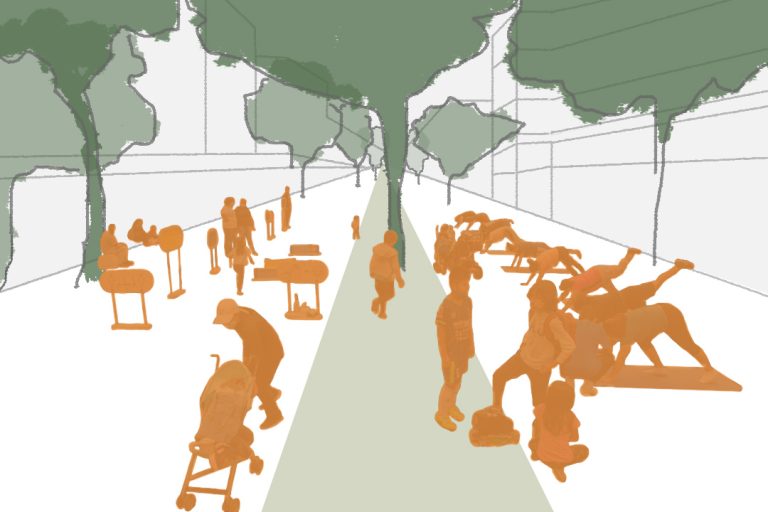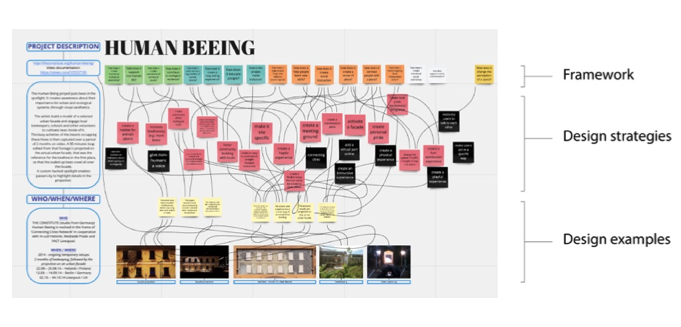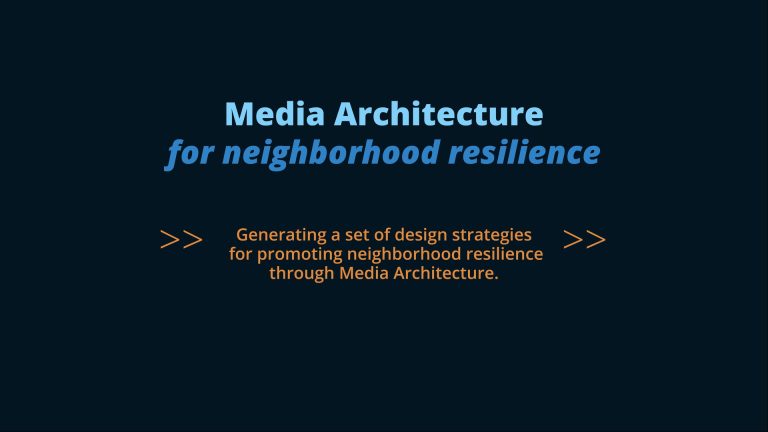Designing for Neighborhood Resilience #1: From Covid crisis to post-Covid resilience
In the research project ‘From Prevention to Resilience’, we explore the possibilities for public space and civic engagement to contribute to neighborhood resilience. What can we learn from the Covid pandemic? How did public space and civic engagement contribute to more resilience in our neighborhoods? And how can we anticipate on future shocks and stressors, such as climate change and biodiversity loss? With the LIVECAST series ‘Designing for Neighborhood Resilience’, we explore design perspectives in which social and ecological issues are addressed in an integral way. Various experts joined the conversation, while concrete design cases were used as the basis for dialogue.
Designing for Neighborhood Resilience #1: From Covid crisis to post-Covid resilience
The importance of public green spaces in the city has become more apparent during Covid times, with residents rediscovering them in their neighborhoods as corona-proof meeting places. The same can be said for the many civic initiatives in our cities, which were able to connect and contribute to the needs of the most vulnerable and marginalized groups during these pandemic times. What lessons can we take from these developments? During this first LIVECAST session, we look for social and ecological design principles that can help us to take steps towards more resilient urban neighborhoods. We will do so by exploring the interconnectedness between social and ecological issues, thereby approaching resilience not only from a human point of view, but also including the needs and contributions of other-than-human residents in our cities. Together with researchers and experts, we discuss the challenges and opportunities of bridging and integrating these different perspectives when designing for resilient neighborhoods.
Speakers:
- Boudewijn Boon, Postdoctoral Researcher at AUAS – Civic Interaction Design ;
- Beitske Boonstra, Researcher in Public Administration and Sociology at Erasmus University Rotterdam;
- Nienke Sluimer, Urban planner & advisor at STIPO;
- Cécile Espinasse, Artist and social designer, founder of studio Living Matters.
